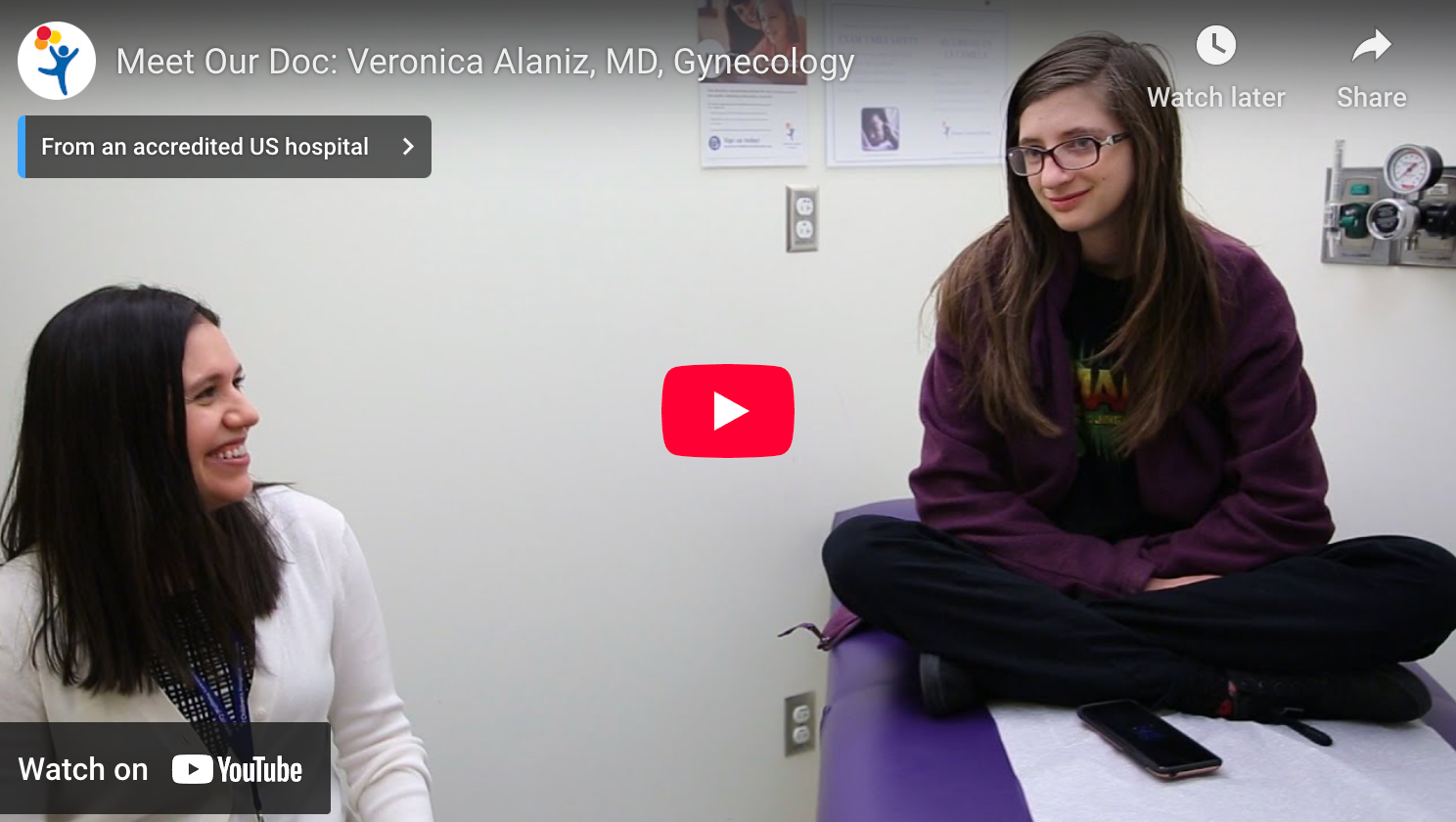Transitioning from pediatric care to adult gynecologic care can be anxiety producing and challenging, but it doesn’t have to be.
 For adult women, seeing a gynecologist for exams and health screenings is routine and simply part of staying healthy. Regardless of age but especially for teens, seeing a gynecologist can be nerve-racking and uncomfortable.
For adult women, seeing a gynecologist for exams and health screenings is routine and simply part of staying healthy. Regardless of age but especially for teens, seeing a gynecologist can be nerve-racking and uncomfortable.
My colleagues and I find it especially important to create a comfortable and informative environment for young patients, helping them build a foundation for effective and proactive care through every milestone of their reproductive health. Establishing such continuity of care is a core value of the ob-gyn specialty.
Continuity of care occurs when a patient and their physician manage healthcare together over a period of time. It allows us to know a person’s history long-term and apply that knowledge to ongoing and changing needs.
Our team of pediatric and adolescent gynecology at Children’s Hospital Colorado is not only specially trained to address the needs of young girls and teens, but we also work diligently to help young women transition into adult gynecologic care with ease.
Talking the anxiety out of reproductive healthcare
For many young patients, there is fear or anxiety in addressing gynecological concerns. At University of Colorado OB-GYN, our pediatric and adolescent gynecology experts partner with and work at Children’s Hospital Colorado to help put patients at ease during a reproductive health visit.
I start each visit by talking and getting to know my patient outside the medical record. Connecting about hobbies and interests usually helps to ease any anxiety and can facilitate discussions about gynecologic concerns. Establishing clear communication with the girl is essential before approaching the more intimate elements of a visit to the gynecologist.
We approach that whole visit with particular care. For many young women, the anticipation of pelvic exam is extremely anxiety provoking. Young patients should know, however, that a pelvic exam is rarely needed at the first visit.
If necessary, we always get permission from parents and patients for any type of pelvic examination and only do what is necessary for the evaluation. Many times this is just looking at the external genitals.
We are careful to communicate with our patients about each step of their physical exam and why it is important.
Video: Approach to continuity of care
Empowering young women to be their own advocates in gynecologic continuity of care
Many or our teen patients have health concerns that they find difficult discussing with their parents or general practitioners. First and foremost, we assure our young patients that there is no such thing as a stupid question, and that many of those “embarrassing” elements of reproductive health are actually normal and common. Our clinic is a judgment-free zone.
Teens and parents should know that part of the visit will be confidential, which is assured unless there is a concern for danger to the patient or someone else. Adolescence is a time of transition, and it is extremely important that teens have the opportunity to discuss sensitive issues in private.
Confidentiality encourages young patients to communicate more openly about their symptoms and health concerns. This is important to me as I try to provide quality continuity of care to teens. When they are transparent about their needs, we can openly discuss treatment options and find a plan that works for everyone.
I also want teens to be participants in their medical care and empower them to independently communicate with their physicians, now and into the future.
No-fear care for complex reproductive health conditions with continuity of care
Gynecologic conditions can affect women from infancy through adulthood, and there’s no question that complex conditions such as structural abnormalities, heavy periods or endometriosis can be challenging. Managing these conditions can be particularly difficult for younger patients.
I know that finally having a diagnosis and treatment plan for complex gynecological conditions is important – but it can also make transitioning to an adult gynecologist terrifying. Young patients shouldn’t be left wondering, What if this new doctor doesn’t believe me? What if they don’t understand my condition?
I predicate the transition of care on trust and the understanding that my relationship with the patient can continue into adult years – studies show that the trust afforded by a long-term relationship with a healthcare provider can improve treatment outcomes.
One advantage of working at Children’s Hospital Colorado and University of Colorado OB-GYN is that I can maintain relationships through adolescence and into adulthood. This continuity of care is especially important for patients with chronic conditions or complex gynecological histories because it helps prevent a gap in care.
One of my special interests is providing gynecologic care to teens and young women who have anorectal malformations. Sometimes, the rectum (part of the large intestine just above the anus) or anus (opening of the large intestine) form improperly during fetal development.
These malformations present life-long gynecologic concerns to women through adolescence, sexual intimacy, and reproduction. We know that these patients need for collaboration and specialization in the transition of care from pediatrics to adulthood – something our team places a significant emphasis on.
Video: The connection journey
Transition should be seamless
Change can be difficult. As our patients approach adulthood, we work with them individually to determine whether they are ready to transition from Children’s Hospital to CU OB-GYN, or whether they will continue with their pediatric specialist into their adult years.
We take any potential stress out of transitioning to adult gynecologic care by maintaining relationships and referring to our trusted, specialized team at CU OB-GYN.

